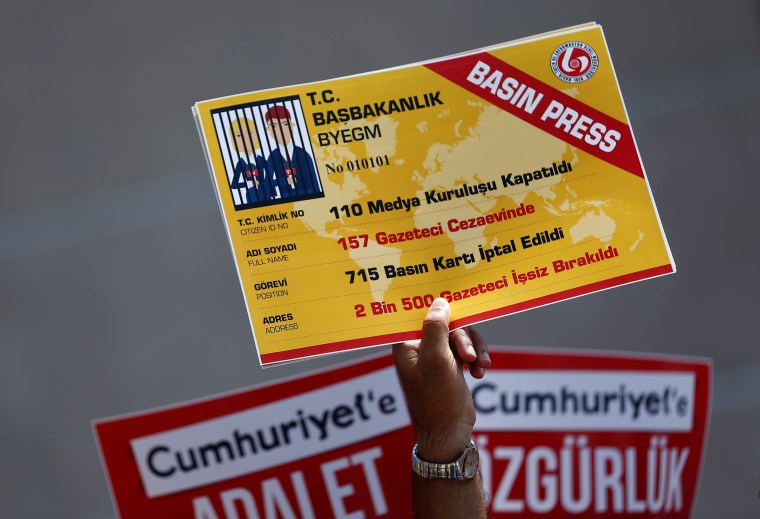Having successfully suffocated most of its domestic independent media, Recep Tayyip Erdoğan’s government is now systematically exporting its war on truth, turning its sights on the last remaining window for the world to see into Turkey: the foreign press. The weapon of choice is no longer just the courts, but the seemingly mundane press accreditation card, which has been transformed from a bureaucratic formality into a political leash.
For international correspondents based in Turkey, the rules of the game have been dangerously rewritten. The process for renewing or obtaining press credentials has become a gauntlet of intimidation, with authorities openly delaying or denying applications based on whether a journalist’s reporting is sufficiently favorable to the ruling party. This creates an impossible choice for reporters: self-censor or risk being stripped of the legal ability to work, effectively expelling them through bureaucracy.
This subtle coercion is backed by blunt force. When a journalist’s reporting is deemed too critical, the government does not hesitate to act. New York Times reporter Rod Nordland was denied entry. Wall Street Journal correspondent Dion Nissenbaum was held incommunicado for days over a tweet. French journalist Olivier Bertrand and American freelancer Lindsey Snell were detained and deported. The message is clear: fall in line, or you will be removed.
This physical harassment is amplified by a vicious and coordinated propaganda campaign led by Erdoğan himself. He has personally branded respected international journalists as spies and traitors. CNN’s Ivan Watson was a “spy.” The Economist’s Amberin Zaman, a “shameless militant.” The BBC’s Selin Girit was part of a “conspiracy against her own country.”
When the president sets such a tone, the state apparatus and its digital troll armies follow. Foreign journalists who report on inconvenient truths, like terror attacks, are immediately targeted by pro-government social media mobs, who use doctored images and baseless accusations to paint them as “agents” and “terrorist sympathizers.” This is not random online anger; it is a calculated strategy to incite hatred and endanger journalists on the ground.
This assault on the foreign press cannot be viewed in isolation. It is the logical and terrifying next step in a campaign that has already seen nearly 200 Turkish media outlets shuttered and more than 190 Turkish colleagues jailed on baseless terrorism charges since the 2016 coup attempt. Having successfully built an echo chamber at home, the government is now trying to soundproof the country from the outside world.
The goal is chillingly simple: to ensure that the only narrative that emerges from Turkey is the one sanctioned by the presidential palace. By systematically intimidating, detaining, and delegitimizing the foreign press, Ankara seeks to create an information vacuum where its actions can proceed without scrutiny. For a NATO country and a perennial EU candidate, this is not just a crackdown; it is a conscious effort to sever its connection to the democratic world and the values of a free and open society.
